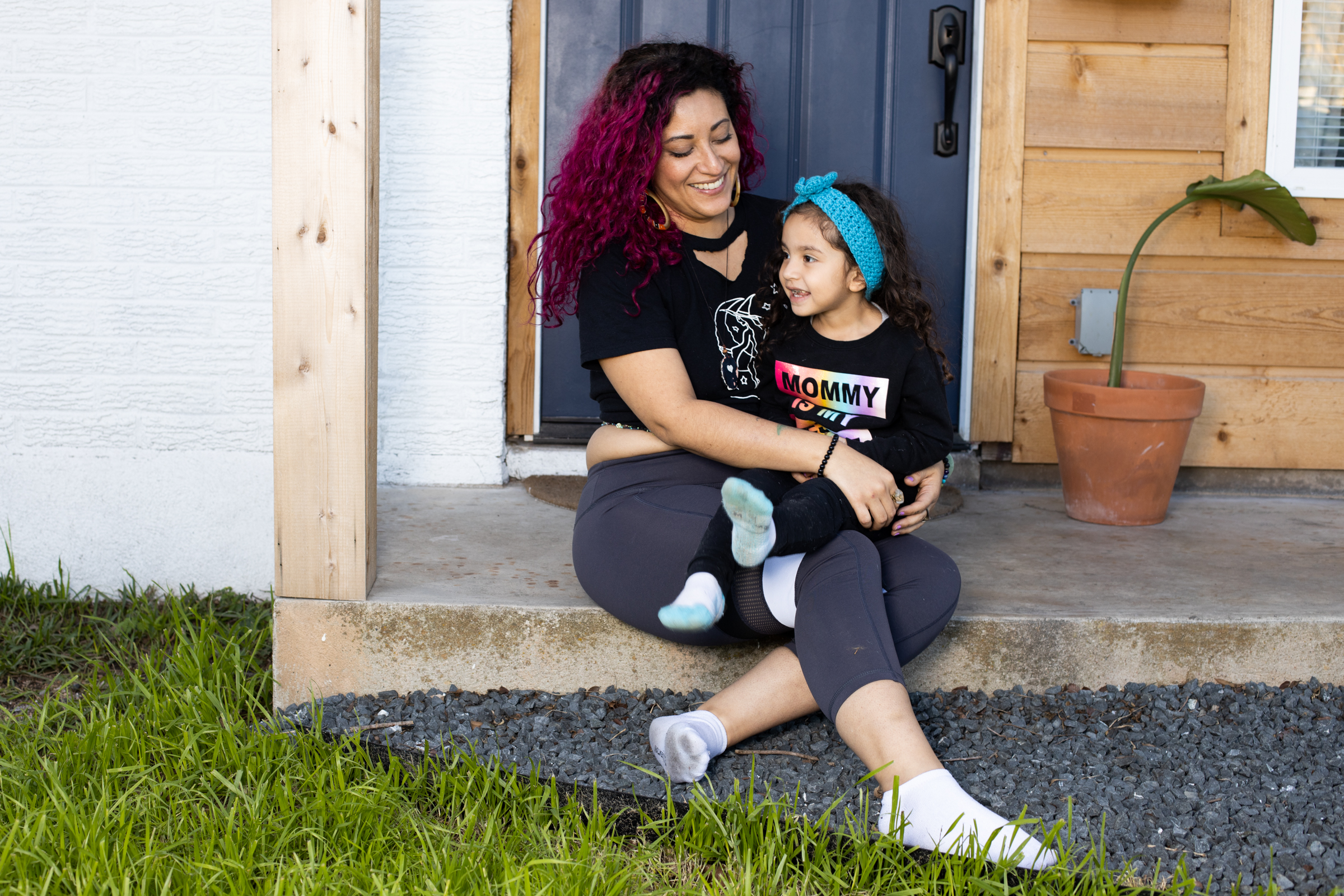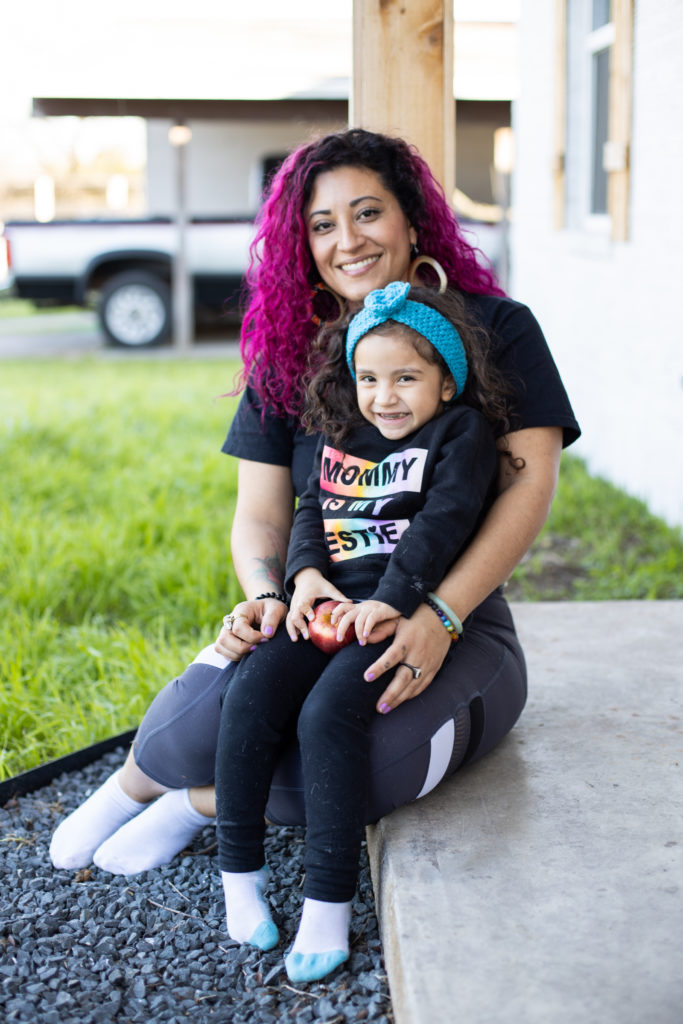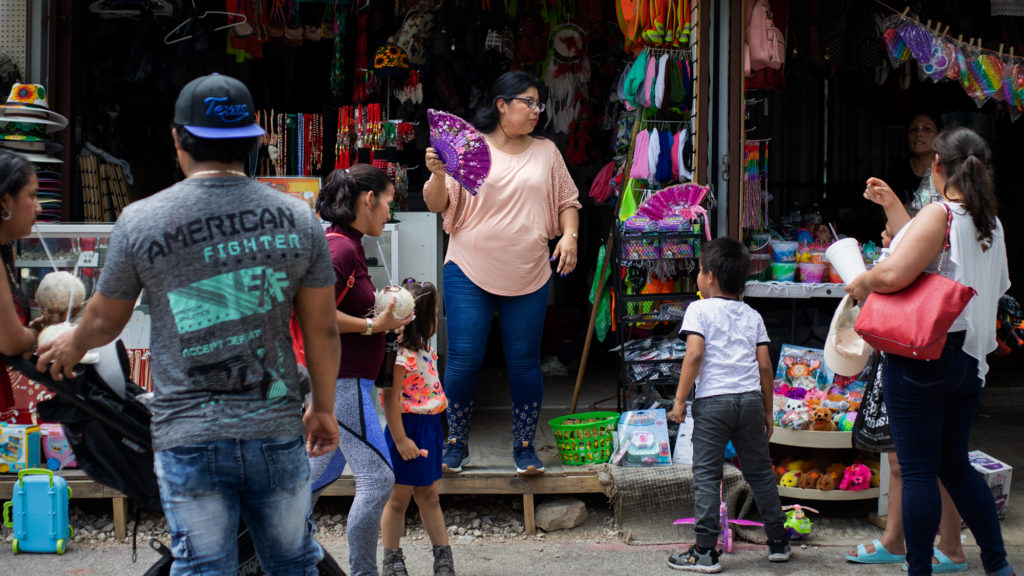Ellen Gonzalez’s entire career relies on physical touch. As a birth worker, yoga instructor, and reiki practitioner, being able to see and interact with her clients is critical to her work.
“There are just some things that are communicated nonverbally,” Ellen says. “Newborn babies need touch. They need the closeness, skin to skin, you know — it affects their heart rate, it affects their body temperature. These things are chemically a part of being a human being.”
Since social distancing has been in place and a stay at home order was issued in Austin, Texas, where Ellen lives with her partner and three children, she has been unable to see her clients in person. Two weeks ago, when she visited one of the pregnant mothers she supports as a doula, she was asked to leave the hospital because new rules stated only one other person besides staff could stay in the room. Normally, she would stay with the laboring mother for the duration of the birth, and in this case she was also functioning as a translator for the husband. Instead, she had to call the husband on the phone.
“I was really traumatized by giving my word that I would be at the hospital with this particular mom, giving my word to her husband — because he doesn’t know English — that I would be there and that I would be advocating and translating as much as I could. It was just such a shock that I couldn’t be there. That was when things started to really change day by day.”
Ellen stayed on the phone until the baby was born at 3:30am, but it was not the experience she or the mother were expecting to have.
“That’s when she needed me the most,” Ellen says of the mom who gave birth, “and so I think she felt really disempowered and disappointed.”
In the U.S., maternal mortality rates are significantly higher for women of color — black women, for example, are two to three times more likely to die from pregnancy-related causes than white women. Ellen works with organizations that are trying to address this disparity by providing support and advocacy for women of color during pregnancy and labor.
Ellen is worried the women she supports will slip through the cracks in a medical system that already works against them. She is trying to adjust her practice to provide service remotely, by leading meditations over the phone, or demonstrating over video how to do a breast massage for a new mother, or just listening to her clients talk about the birth experiences she can no longer share with them.
“Where I stand is just trying to continue to be a channel for others to know their rights and to know their options and to make more informed decisions,” she says.
Ellen is also studying to be a midwife, and she’s noticing that more women are concerned about delivering in hospitals, for fear of COVID-19 infection. Midwives she knows are being asked to take on late transfers of clients who originally planned to deliver in a hospital but are now considering home births.
“I think that maybe this is positive,” Ellen says, “because it will create a space for people to actually want to become more informed about their choices and a little bit more educated about creating a birth experience they really want.”
She also hopes it will push insurance companies to offer more coverage for midwives, something few private insurers offer.
“Coverage should be across the board regardless of how someone chooses to birth.”
As Ellen settles into the new normal of social distancing, she and others in her field are rethinking what it means to do the work they do. As a part-time yoga instructor, all of her classes have been cancelled, so she has lost a significant portion of her income. She says many birth workers are in the same boat.
“The fact that this virus and pandemic has affected most of our other work — it’s like, this is the last thing we’re trying to hold on to, the birth work. And even though we’re trying to switch more to virtual support, it still doesn’t mean we’re not suffering a great financial loss from this.”
Ellen’s biggest concern continues to be her clients. A few days after the birth where she was forced to leave the hospital, she was able to visit her client in person at her home. A typical postpartum visit like that, she says, usually takes about two hours, but Ellen stayed for five.
“I didn’t even blink an eye. I didn’t really check the time. Like, I knew it was longer, but I knew it was necessary.”




